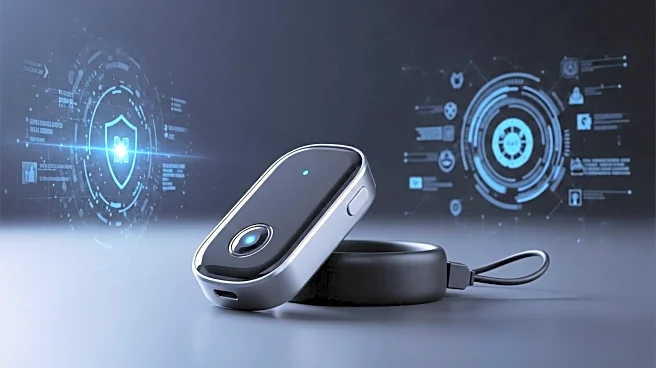What is the story about?
What's Happening?
Security researchers have identified a significant vulnerability in Tile's tracking devices that could potentially allow stalkers to track individuals without their consent. The issue arises from Tile's anti-theft mode, which makes the trackers 'invisible' on the network, thereby counteracting measures designed to prevent stalking. Researchers from the Georgia Institute of Technology found that Tile's trackers do not frequently rotate their unique IDs and MAC addresses, unlike similar products from Apple and Samsung, making them easier to track. The Electronic Frontier Foundation has long criticized Tile for these vulnerabilities, emphasizing the need for better security practices, such as encrypting transmitted information and regularly changing device identifiers.
Why It's Important?
The security flaws in Tile's tracking devices have significant implications for user privacy and safety. With the potential for misuse by stalkers, individuals using these devices could be at risk of being tracked without their knowledge. This raises broader concerns about the security of Bluetooth-enabled tracking devices and the responsibility of companies to protect user data. The issue also highlights the need for industry-wide standards to ensure that all manufacturers implement robust security measures. The potential for misuse could lead to legal and ethical challenges for Tile and similar companies, as they may face increased scrutiny from regulators and privacy advocates.
What's Next?
In response to the identified vulnerabilities, Tile's parent company, Life360, has stated that it has made several improvements since being alerted to the issue. However, the company has not provided specific details about these changes. Moving forward, there may be increased pressure on Tile and other tracking device manufacturers to enhance their security protocols and provide greater transparency about their practices. Additionally, there could be calls for regulatory action to establish industry standards for the security of tracking devices, ensuring that user privacy is adequately protected.
Beyond the Headlines
The vulnerabilities in Tile's tracking devices underscore the broader challenges of balancing convenience with privacy and security in the tech industry. As more devices become interconnected, the potential for misuse increases, necessitating a reevaluation of how companies approach data protection. This situation also raises ethical questions about the responsibility of tech companies to anticipate and mitigate potential harms associated with their products. The ongoing dialogue between privacy advocates, regulators, and tech companies will be crucial in shaping the future landscape of consumer technology.
















